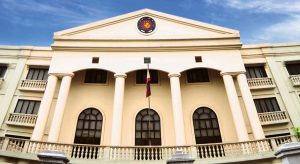THE Department of Budget and Management (DBM) said its proposed amendments to the procurement law of 2007 include an e-marketplace and changes to the longstanding practice of awarding contracts to the lowest bidder.
The proposed amendments to the Government Procurement Reform Act of 2007 are designed to achieve greater efficiencies in government purchasing, Budget Secretary Amenah F. Pangandaman said at a Palace briefing on Tuesday.
The proposed reforms will also encourage green procurement, she added.
Ms. Pangandaman said the e-marketplace will initially focus on vehicle purchases.
The DBM will also seek to extend the applicability of its Most Economically Advantageous Tender system to goods from the current practice of using it only for services, Budget Undersecretary Dennis S. Santiago said at the same briefing.
“We always go for the lowest and cheap-but-not-nice, so we are looking at areas where we can… improve the evaluation method (for awarding bids).”
“We will apply it to goods and even infrastructure,” he added, noting that weightings will be assigned to a number of bid criteria. “There’s a certain percentage for the technical aspect, there’s a certain percentage for the financial aspect, and when you put them together, you will have the highest-rated bid, the most economically advantageous tender.”
The proposed reforms will also allow a no-bid acquisition process for goods costing less than a threshold of about P250,000,” or even lower,” Mr. Santiago said.
Under such a system, “the procuring entity will set its own technical requirements and then approach the appropriate (supplier).”
Ms. Pangandaman said President Ferdinand R. Marcos, Jr., who called for a new government procurement law during his second address to Congress in July, “agrees” with most of the proposed amendments.
“We need to understand that he also came from local government, and he understands the procurement process, so he was able to explain the areas where local government units (LGUs) are experiencing difficulty.”
Mr. Marcos represented the second district of Ilocos Norte at the House of Representatives between 1992 and 1995. He also served as the province’s governor between 1998 and 2007.
Ms. Pangandaman said it will take two weeks to come up with “specific amendments per provision.”
At the briefing, Ms. Pangandaman blamed slow government spending on procurement bottlenecks.
The government failed to spend P170 billion of allocated funds in the first half, she noted, adding that as a result, “the contribution of government spending to gross domestic product (GDP) was reduced,” Ms. Pangandaman said.
As of June 30, the top five agencies with the lowest obligation rates — a measure of how much cash has been cleared for spending — were the Department of Communications and Technology, the Commission on Elections, the Department of Agrarian Reform, the Department of Social Welfare and Development, and the Department of Energy, she said. — Kyle Aristophere T. Atienza

